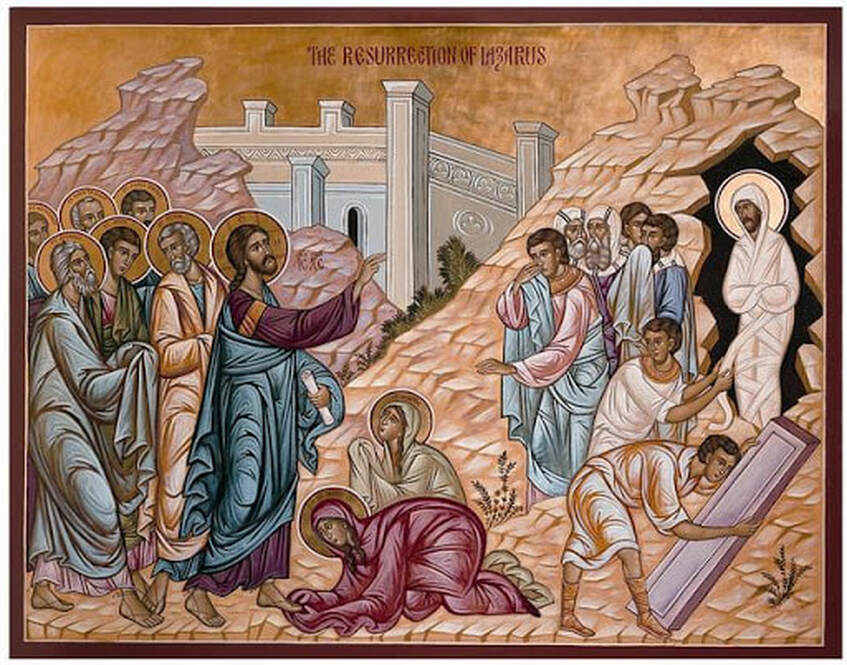|
Gospel Reading: John 11:1-46 Beloved Brothers and Sisters in Christ, In essence, Holy Week starts with the Saturday of Lazaros. The Saturday of Lazaros and Palm Sunday, together, express a glorious two-day period in the life of Christ and the life of His Holy Greek Orthodox Church. I will assume we all know the incredible, heart-wrenching and then, astonishing events of the story around Lazaros’ death and resurrection. As I often say with any reading from the Scriptures, we can discuss so many things. This year however, I want to focus on the command Jesus gives to the people after Lazaros comes forth, alive, from the tomb: “Unbind him, and let him go,” “Λύσατε αυτον, και άφετε υπάγειν” On the surface, the command is for the people to take off the funeral cloths and bindings that were placed around Lazaros, as was the custom of the Hebrews in those days. But what does this phrase, “Unbind him, and let him go” really mean? And to whom is the command really directed?
Well, let’s take a little stroll together for a moment… Remember Moses? By his time, the Israelites had been slaves in Egypt for nearly 400 years. In terms of biblical symbology, Pharaonic Egypt represents sin and slavery. After Moses’ encounter with God on the mountain by the burning bush, Moses, and his brother Aaron, go to Pharaoh and say, “Let my people go…” according to Cecil B. DeMille, and so marvelously uttered by Charlton Heston in The Ten Commandments. However, that’s NOT what the text says (even the Orthodox Study Bible doesn’t have it quite right). The text actually says (Exodus 5:1), “Send my people out, that they may keep a feast to me in the desert.” “Εξαποστείλον τον λαον μου, ίνα μοί εορτασωσιν εν τη ερήμω.” The difference between “let my people go” and “send my people out” has huge implications for the work of salvation the Lord puts in motion. Pharaoh may indeed “let the people go,” but that does not mean they are completely free. Yes, they no longer will be under the thumb of Pharaoh, but they are still shackled to sin and death. In fact, the moment the Red Sea closes upon Pharaoh’s army, the people sin against God and all of them, except Joshua and Kaleb, will die before they cross the Jordan forty years later! The Lord commanded Pharaoh to “send my people out” so that the Lord and can prepare them, in the desert, for something even greater than a release from the slavery in Egypt. In other words, the Lord is saying to Pharaoh, “you send my people out to Me, and I will let them go.” God was preparing His people in the desert to receive the purest freedom of all – freedom from sin and death for eternity. Or another way to write it, to prepare them for eternal life. At the very end of the movie, DeMille, through Heston, quotes Leviticus 25:10: “Go, proclaim liberty throughout all the lands, to all the inhabitants thereof!” Then Heston nobly walks a little higher on the mountain overlooking the Jordan valley and waves farewell as the sun rays shine through the dark clouds and the orchestra plays a triumphant finale. It evokes a sense of pride, freedom from slavery, and a worldly future for the Israelites. Pretty cool… but not close to correct. The final words of Moses are found in Deuteronomy 32 and 33. They are far different from DeMille’s. Further, when DeMille quotes Leviticus 25:10 in the final moments of the movie, it’s truly out of context and meaning. The point of Leviticus 25:10 (and its context) has to do with the people atoning for their sins, following God’s will, and refraining from oppressing their fellow Israelites! (We’ll come back to this a week from now…) Leaving Egypt had nothing to do with political, social, or economic freedom. It had everything to do with Lord gathering His people in preparation for something greater: freedom of sin and death through His Son. Looking at the big picture, everything in the Old Testament from Exodus through the end of the book of Daniel (the last book in the Septuagint Old Testament – and I’ll come back to the position of Daniel in exactly a week) is meant as a preparation for the Anointed One, the Christ. And what Christ brings us is salvation from sin and death for eternity. Now back to Jesus the Christ, and Lazaros… When we hear Jesus command those nearby to, “Unbind him [Lazaros], and let him go,” we should look at it as the fulfillment of what Moses began by leaving Egypt. The difference is that God Himself, taking the form of His own creation (man) in His Son Jesus, completes what had been started through Moses. These words, “Unbind him and let him go” are meant for sin and death. This “unbinding” and “letting go” that Jesus commands will finally removes the shackles from all mankind. When man is freed from the shackles of sin and death, he is able to rise, through Jesus, to heights of heaven and live with Him forever! The raising of Lazaros is a foreshadowing of what will happen through Jesus’ death. When Jesus dies, He does not remain still. He immediately storms the gates of Hades to preach, unshackle, and bring eternal life for all the people there. The words upon Lazaros’ resurrection, “Unbind him, and let him go,” are the “shots across the bow” that Jesus gives to sin and death before they (sin and death) are finally torpedoed a week later. Jesus’ resurrection from the dead is the final and only atonement necessary that is foreshadowed in Leviticus 25:10. My beloved friends, the raising of Lazaros, as St. John documents, is powerful for many reasons. But there is no greater power exerted on behalf of all mankind than when Jesus commands Lazaros to be unbound and let go. Lazaros, and in turn all of us, are now able to live forever with Christ. And that is true freedom and true liberty. Amen. With Love in Christ, +Fr. Nick Comments are closed.
|
AuthorsMessages written by the clergy of our parish. Archives
May 2021
Categories
All
|
© 2023
Saint Nicholas Greek Orthodox Church
3109 Scio Church Road, Ann Arbor, MI 48103
Phone: (734) 332-8200
Fax: (734) 332-8201
Saint Nicholas Greek Orthodox Church
3109 Scio Church Road, Ann Arbor, MI 48103
Phone: (734) 332-8200
Fax: (734) 332-8201


 RSS Feed
RSS Feed
